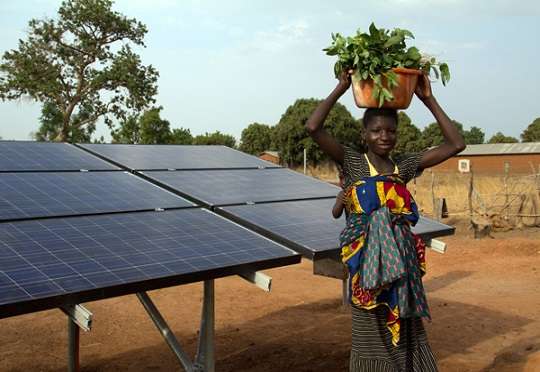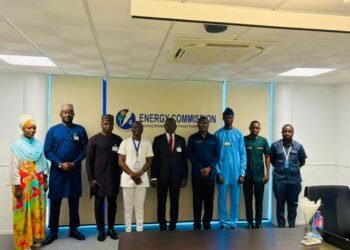The government has announced plans to roll out solar-powered irrigation pumps across the country in a move designed to boost agricultural productivity, reduce dependence on rain-fed farming, and strengthen resilience in the sector.
The initiative was disclosed by the Minister for Energy and Green Transition, John Jinapor, during the seventh meeting of the International Solar Alliance (ISA) Regional Committee for Africa.
Speaking to the media after the ministerial session, Hon. Jinapor said the government is determined to transform Ghana’s agriculture sector by ensuring farmers can cultivate crops all year round rather than being restricted by seasonal rainfall.
“For some parts of the country, for close to six months during the dry season, because our farmers depend on rain-fed agriculture, they virtually have nothing to do.”
John Jinapor, Minister for Energy and Green Transition
He noted that Ghana is drawing lessons from India, which has already pioneered the use of solar-powered pumps in agriculture.

“India has pioneered it and we want to learn from them. They have agreed that they will work and collaborate with us so that we can install these solar pumps.
“By installing these solar pumps, what will happen is Ghanaians will be able to engage in productive all-year-round farming. We have signed some MoUs.”
John Jinapor, Minister for Energy and Green Transition
According to him, the technology is expected not only to improve food security but also to create sustainable livelihoods in rural communities, reduce poverty levels, and support Ghana’s green transition agenda.
Global support for Africa’s solar future

The ISA meeting in Accra brought together 19 ministers from African countries and representatives from 39 nations.
Discussions focused on scaling up renewable energy adoption across the continent, with particular emphasis on solar-driven agricultural solutions.
Ashish Khanna, Director-General of the International Solar Alliance, announced a $200 million facility to accelerate the adoption of solar solutions in Africa.
Out of this, $75 million is expected to be operationalized before the end of 2025, with Nigeria set to benefit from the first tranche of funding.
“We were proud and privileged to have 19 ministers from African countries and 39 countries represented.
“They heard and ratified the strategy of the International Solar Alliance of moving from ambition to action by having the support of an African solar facility which is a catalytic finance of $200 million.”
Ashish Khanna, Director-General of the International Solar Alliance
He added that the fund would leverage over $800 million of decentralized renewable energy investments from the private sector, supporting projects across Africa.
African Solar Facility to drive investments

At the ministerial session, delegates discussed the African Solar Facility (ASF), a catalytic blended finance initiative designed to de-risk solar investments and mobilize both domestic and international financing for renewable projects.
The ASF is expected to address one of the major bottlenecks in solar adoption across Africa: access to affordable financing.
For Ghana, the solar irrigation pump initiative comes at a crucial time, as the country works to modernize its agriculture sector and achieve food self-sufficiency.
The government has already been promoting renewable energy through its broader Energy Transition Framework, and the irrigation pump project ties directly into this agenda by using clean technology to tackle food security challenges.
Hon. Jinapor reiterated that solar irrigation is not just about agriculture, but about transforming livelihoods.
With Ghana’s agriculture sector employing over half of the workforce, the impact of such a program could be significant.
As discussions at the ISA regional committee wrapped up, the mood among participants was one of optimism. The combination of government commitment, international financing, and private sector participation is seen as a turning point for Africa’s solar revolution.
For Ghana, the deployment of solar-powered irrigation pumps represents a concrete step toward sustainable development one that aligns with both the country’s green transition goals and its ambition to strengthen agricultural productivity.
If successfully implemented, the program could set Ghana on the path to becoming a model for renewable-driven agriculture in Africa, while ensuring that the country’s farmers are no longer left at the mercy of seasonal rainfall.
READ ALSO: Investors Snub T-Bills As Government Struggles to Raise GH¢6.7bn, Settles for GH¢3.2bn























